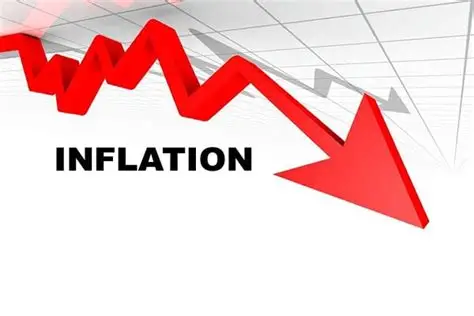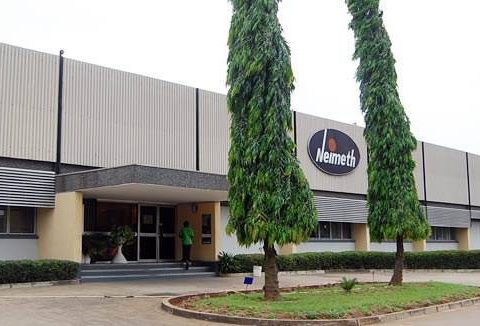The Central Bank of Nigeria’s (CBN) decision to retain the current monetary policy parameters has continued to generate reactions from interest groups and economic analysts.
Prime Business Africa had reported that during the 300th Monetary Policy Committee (MPC) meeting earlier this week, the MPC voted retain the current monetary policy parameters, including the Monetary Policy Rate (MPR), which benchmarks all bank lending at 27.5 per cent, the Cash Reserve Ratio of Deposit Money Banks at 50.00 per cent, Merchant Banks at 16 per cent, and the Liquidity Ratio at 30.00 per cent.
Join our WhatsApp ChannelThe Lagos Chamber of Commerce and Industry (LCCI) has raised concerns that the current MPR is still very high and affects private sector development.
In a statement signed by the Director General, Dr Chinyere Almona, LCCI said the current interest rate has impacted MSMEs, which are considered the engine of job creation and productivity in Nigeria, as the high cost of credit has impaired their capacity to grow and contribute meaningfully to economic development.
The Chamber also observed that it has become increasingly clear that only monetary policy cannot control inflation that stems from the shortage of supply.
“The current MPR level remains prohibitively high for private sector development. MSMEs, the engine of job creation and productivity in Nigeria, are being squeezed by the high cost of credit. Without affordable financing, their capacity to grow, compete, and contribute to economic development is severely limited,” LCCI stated.
“Moreover, it is increasingly clear that monetary policy alone cannot curb inflation that stems from structural and supply-side inefficiencies.”
Similarly, the Centre for the Promotion of Private Enterprise (CPPE) raised concerns about the implications of maintaining the interest rate at 27.5 per cent.
READ ALSO: CBN Urges Fiscal Authority To Boost Efforts In Forex Earnings From Exports
In a statement by its CEO. Dr. Muda Yusuf, CPPE, while welcoming the decision of the monetary policy committee to pause the tightening of rates, however, stated that the current interest rate and cash reserve ratio were already very high, creating difficult financing conditions for investors in the real economy.
The think tank maintained that raising the interest rate, as the CBN had done in the past one year was not an option because of the prevailing realities in the economy.
On its part, LCCI called for synergy between monetary and fiscal authorities to address the root causes of inflation, such as insecurity, infrastructure deficits, and food supply disruptions.
To cushion the effect of the current policy, LCCI proposed four strategies it described as a “market-friendly” approach.
It urged authorities to “Remain consistent with the reforms that support price stability through increased production in the real economy.
“Reinforce development finance initiatives by offering concessional rates to high-impact sectors such as manufacturing, agriculture, renewable energy, and power supply. Development finance institutions like the Development Bank of Nigeria, Bank of Agriculture, NEXIM Bank, and the Bank of Industry need better funding and direction towards supporting the productive and industrial sectors of the economy.
READ ALSO: CBN’s Monetary Policy Not Effective, Major Inflation Drivers More On Fiscal Side – Analyst
“Promote transparency in bank lending rates to ensure borrowers are not unfairly burdened by excessive spreads above the MPR.
“Implement measures to stabilize the FX market, reduce arbitrage opportunities, and rebuild investor confidence, critical steps for reducing imported inflation.”
The LCCI stressed that the way forward must be to balance inflation containment with the need to revitalize Nigeria’s productive economy.
It urged the CBN and the Federal Government to integrate these perspectives into their policy decisions to “foster sustainable growth and economic resilience.”
Prime Business Africa reports that the CBN’s decision to retain the interest rate at 27.50 percent follows the inflation rate drop to 23.7 percent year-on-year in April 2025, according to the National Bureau of Statistics consumer price index released recently.
Chief Economist and Senior Partner at SPM Professionals, Dr Paul Alaje, said even with the rebasing of the Consumer Price Index, inflation is still very high at over 23 per cent.
He said the CBN’s current interest rate is affecting businesses and employment. According to him, when businesses are unable to borrow money because of high interest rates, it affects their ability to expand and also employ people into the workforce. This, he added, has implication on domestic production.
READ ALSO: Inflation: Concerns About CBN’s Monetary Policy Impact As 91% Of Naira Outside Banks
Speaking on the way forward, he also said bringing down inflation is not going to work with only monetary policy adjustments. Alaje reiterated the need for scaling up production and export from different sectors, including manufacturing and agriculture.
On efforts by the Federal Government to mitigate food shortage, Alaje urged caution in allowing food imports, stressing that it is supposed to be a short-term measure.
He pointed out the downsides of continuous food importation, which include pressure on foreign exchange and discouragement of local production.
He suggested that the Federal Government could adopt a national agricultural programme that does not just end with farming, but also extends to processing and exports.
While noting the impact of insecurity on some key agricultural production zones, the economist said the government can while trying to tackle insecurity, should also stimulate production in other regions that are relatively safe and identify the types of crops that are suitable in such places for greater yield.
He also re-emphasised the imperative of having stable electricity as it remains key to boosting industrial and business activities and also reducing energy costs.












